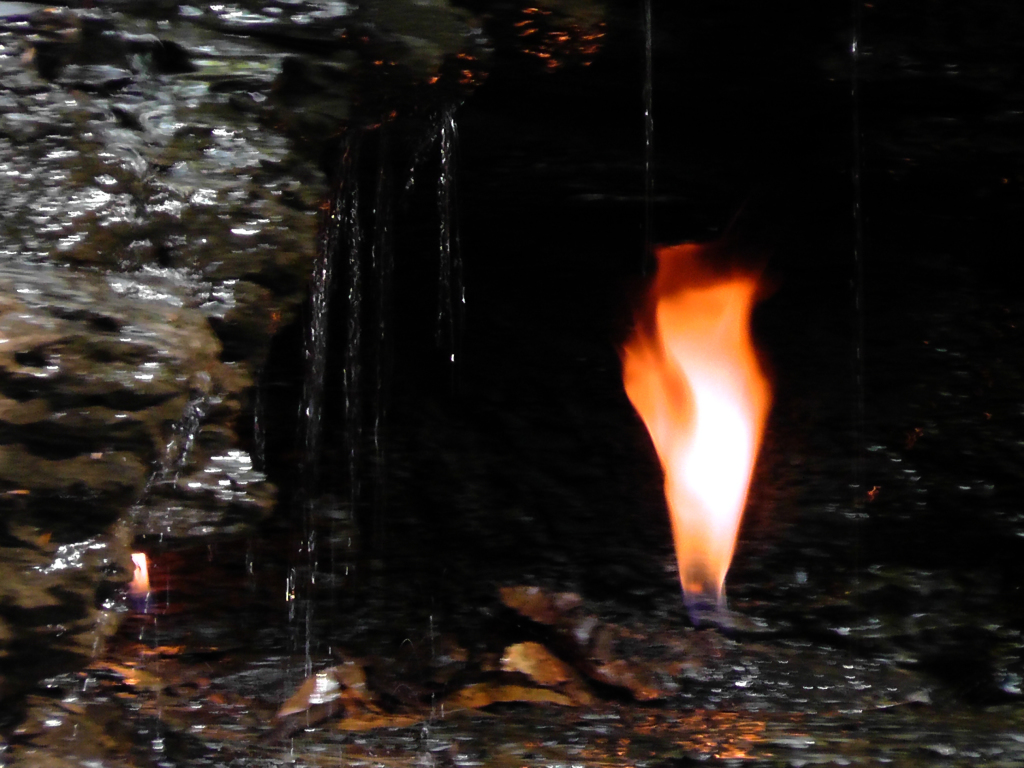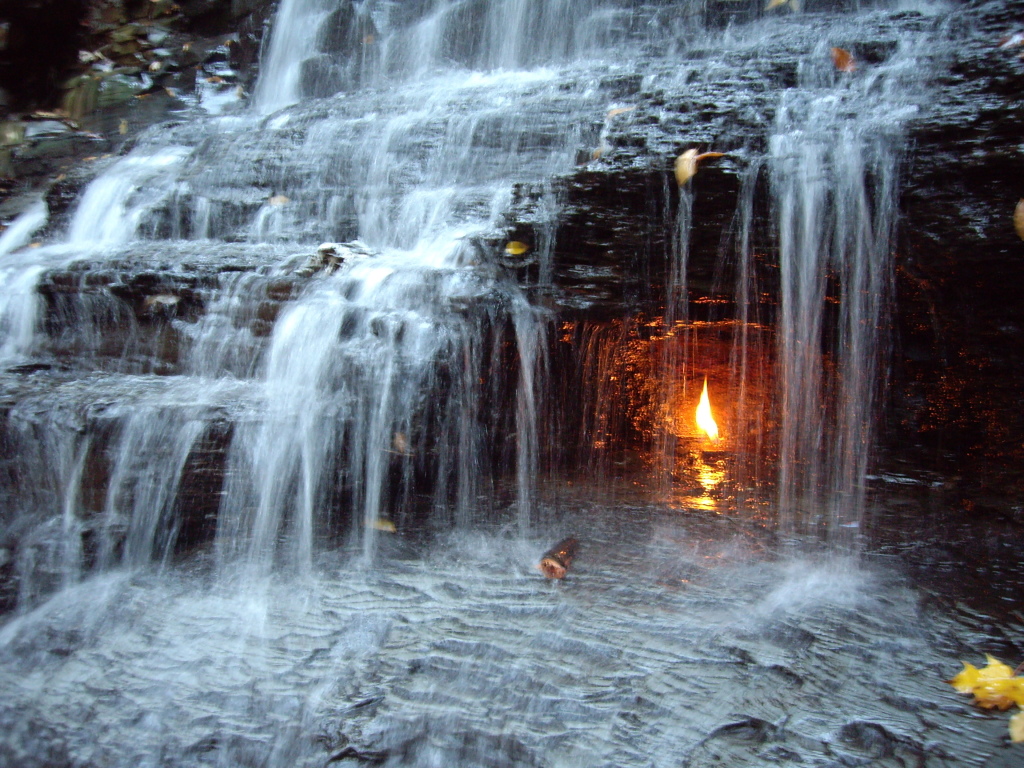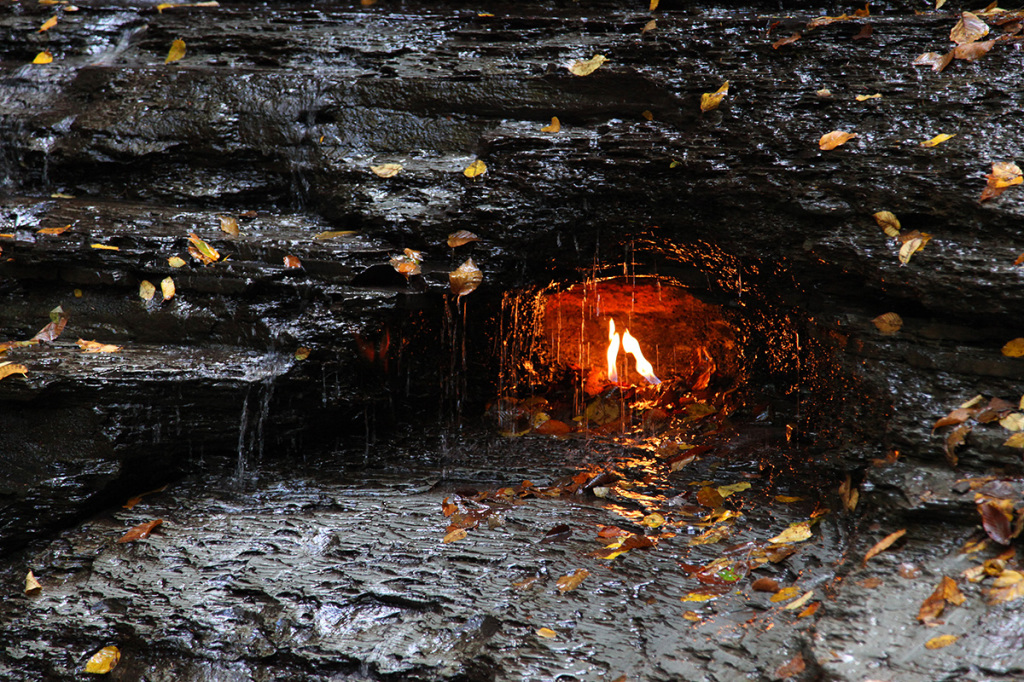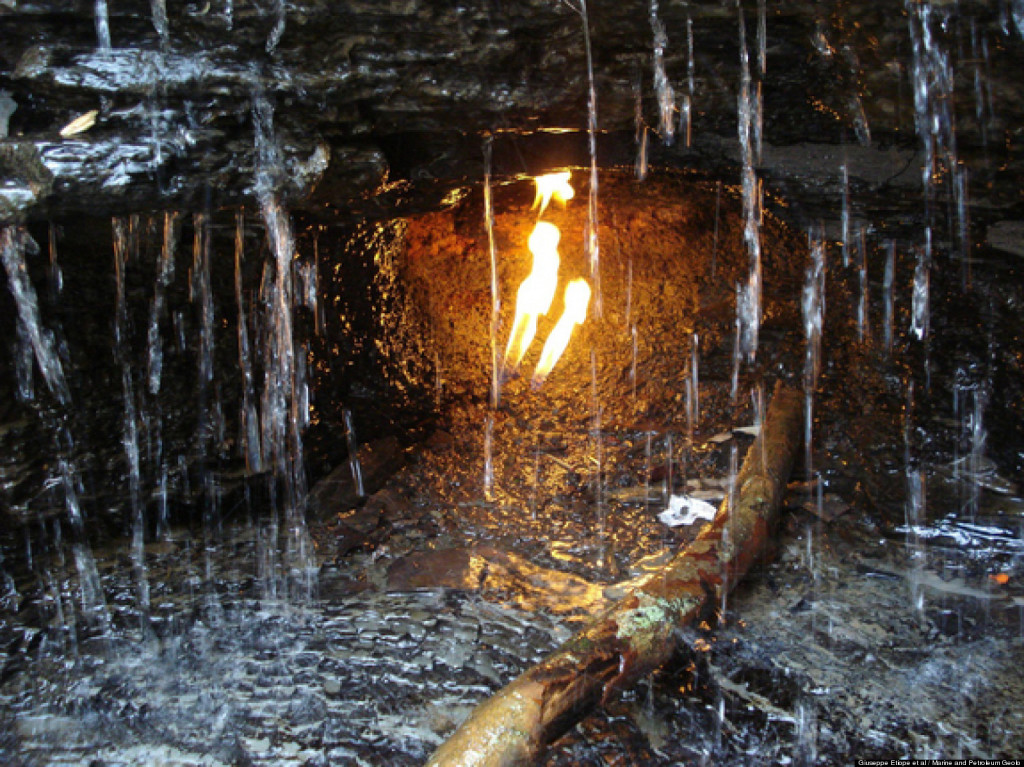Eternal Flame Falls is truly one of the most exclusive waterfalls in the United States and one of the few remaining natural areas that we may find on our planet earth. It can be easily called that the falls may be the only one of its kind on the planet. In the first look, you might be sensing an optical illusion of a flickering golden flame.
However, in fact, this is a real behind the cascade of a small waterfall in the Shale Creek Preserve section of Chestnut Ridge Park in suburban Buffalo, New York. In fact, you will smell it before you see it, and astonishingly, it’s real, fueled by what geologists call a macro step of natural gas from the Earth below. This is a geological fault in the shale that lets approximately one kilogram of methane gas per day escape to the surface, where at some point, perhaps the early 20th century, a visitor had the idea to set it alight. The water sporadically extinguishes the flame, but there is always another hiker with a lighter to reignite it. There are lots of fissures in the creek bed through which methane gas escapes, and you will smell it as you approach the falls, but the others can’t be set aflame because they’re exposed to dissipation by the air currents or are underwater to look for rising bubbles.
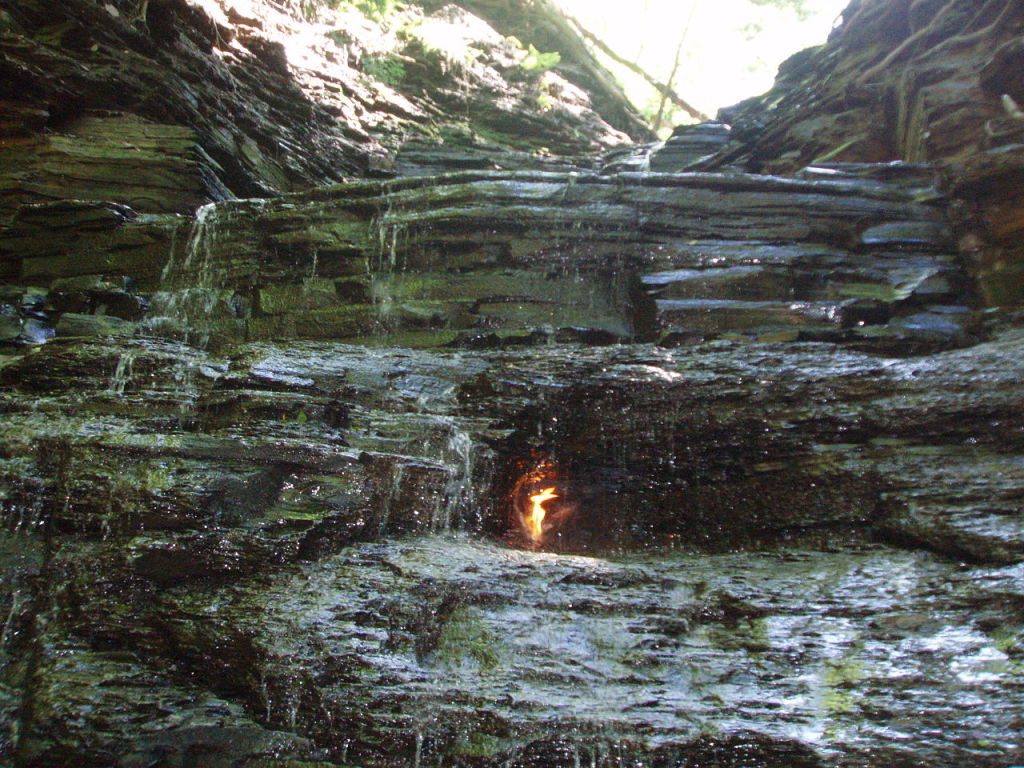 The waterfall is called a simple phenomenon, “A Natural Gas Leak” Just underneath the falls that are just happening to be burned. This is tucked deep within Chestnut Ridge Park, New York, is a little waterfall called the Eternal Flame Falls. Chestnut Ridge Park is located on 1213 acres of the northern face of a series of hills sandwiched between the Eighteen-mile Creek and West Branch Cazenovia Creek valleys in Erie County.
The waterfall is called a simple phenomenon, “A Natural Gas Leak” Just underneath the falls that are just happening to be burned. This is tucked deep within Chestnut Ridge Park, New York, is a little waterfall called the Eternal Flame Falls. Chestnut Ridge Park is located on 1213 acres of the northern face of a series of hills sandwiched between the Eighteen-mile Creek and West Branch Cazenovia Creek valleys in Erie County.
The flame is not really “eternal” in the sense that it goes out occasionally. Often it is re-lit by the next hiker that finds it extinguished. The gorgeous eternal flame falls are mainly dependent on rainfall and meltwater, and normal flow in early spring, or after long bouts of heavy rain.
It reaches 30 feet high, cascading over sloping shale in two segments. A little grotto, 5 feet up from the creek bed, to the right, houses the natural gas spring that can be ignited to make a flame of four to eight inches in height. When flow is high, the water pours over the grotto, covering the flame and diffusing the light like a lampshade. The park itself is an excellent family destination, especially in summer, comprised of miles of hiking trails, cycling paths, numerous playing fields, tennis courts, and a wealth of picnic facilities and shelters.
Eternal Flame Falls, despite being situated within the park boundaries, is off on the fringe, away from the crowds, and most directly accessible from a trail that begins on the southern edge of the park. As you approach the falls, the smell of rotten eggs hits your nose. What you smell is the natural gas that leaks from between the shale layers. The gasses formed during the decomposition of the organics within the rock deposits are under pressure and push out through cracks and loose layers within the rock. Two other, smaller seepage within the grotto can be lit, although they can’t hold a flame as big or as long as the primary flame.
The gasses formed during the decomposition of the organics within the rock deposits are under pressure and push out through cracks and loose layers within the rock. Two other, smaller seepage within the grotto can be lit, although they can’t hold a flame as big or as long as the primary flame.
There are several other gas seepages, or springs, around the falls, but locating them can be problematic, and lighting them is often impossible. Some are located underneath the pool below the falls and can be seen as bubbles rising up from the bedrock below. Contrary to its name, however, the Eternal Flame is not always on flame but the escaping gas can usually be lighted with a barbecue lighter, so bring one with you in case the flame has gone out when you get there.




